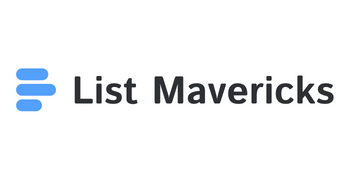Marketing for business brokers is more important now than ever before. With so many options available, brokers must use smart strategies to stand out and reach buyers and sellers. Effective business broker marketing can help attract the right clients, build trust, and boost sales in a competitive market.
Modern business broker marketing covers much more than simple ads or printed materials. It uses digital tools, strong branding, and good relationships to create new opportunities and drive steady growth. Brokers who keep up with the latest methods and focus on results are most likely to see long-term success. For more on proven techniques, this guide shares actionable strategies for business brokers.
Key Takeaways
- Business broker marketing brings in clients and sets brokers apart
- Smart strategies help manage sales, confidentiality, and client trust
- Ongoing learning and digital tools lead to new business opportunities
Understanding Business Broker Marketing

Business broker marketing is about connecting business sellers and potential buyers in an efficient way. Understanding the business itself, the broker’s job, and industry movements impacts how brokers reach their audience and close deals.
What Is Business Brokerage?
Business brokerage is the profession of helping people buy and sell small to medium-sized businesses. Brokers act as intermediaries so that business owners and buyers can complete deals with less risk and stress.
They offer services like business valuation, marketing the business, and managing negotiations. Business brokers often belong to professional associations and must follow specific regulations to maintain trust and credibility.
A broker’s job usually ends when the sale is finalized, but their support can be crucial at every stage. Their main goal is to help sellers find qualified buyers and make the process as smooth as possible.
Role of a Business Broker
A business broker’s main duty is to guide both buyers and sellers through the sales process. This includes listing businesses for sale, sharing their details through targeted advertising, screening potential buyers, and keeping deals confidential.
They often use multiple channels for marketing, such as websites, social media, and online marketplaces. This helps reach more qualified buyers who are interested in the type of business for sale. Brokers provide pricing advice and help both parties with due diligence.
Good business brokers are skilled negotiators who protect the interests of their clients. Their goal is to maximize value and handle obstacles before deals fall through. Effective brokers stand out in a crowded market through strong marketing and by offering clear information about their listings, which makes them more likely to attract quality buyers. Read more about proven broker strategies here.
Market Conditions and Industry Trends
Business brokers must pay close attention to current market conditions and industry trends to stay competitive. For example, changes in the economy can affect how many businesses go up for sale or how many buyers are interested in making a purchase.
Trends like digital marketing, data analytics, and online business listings have changed how business brokers advertise and connect with clients. Brokers also face increasing competition, with more professionals entering the industry and customers expecting fast, convenient services.
Keeping up with economic cycles, regulatory updates, and technology helps brokers adapt their strategies. These factors can influence how businesses are valued, how they market themselves, and which buyers are targeted in different economic climates. For more on the impacts of industry shifts on marketing, see marketing economics for business brokers.
Essential Marketing Strategies for Business Brokers

Successful business brokers use proven methods to get more leads, grow their reputation, and connect with both buyers and sellers. Applying targeted marketing strategies and making use of digital tools can help them stand out in a busy business brokerage market.
Developing a Targeted Marketing Plan
Building a marketing plan starts with knowing the target audience. Business brokers should segment potential clients by industry, business size, and location. This helps them direct their efforts to the most promising leads.
A clear unique value proposition sets a business broker apart in a crowded marketplace. Highlighting special skills or experience can help attract clients seeking industry-specific knowledge.
Effective plans set specific goals and track key performance indicators. Regular reviews let brokers adjust strategies for better results. Tools such as customer relationship management (CRM) systems make it easier to track prospects and manage follow-ups.
Outreach activities can include:
- Networking at local business events
- Direct mail campaigns
- Email newsletters with market updates
Standing out from other brokers is key. Each marketing activity should support the main goal of getting more business and improving client trust. For more details on making and refining business broker marketing plans, see this guide on marketing techniques for business brokers.
Digital Marketing Techniques
Digital marketing is now essential for business brokerage. A well-designed website should be easy to use, mobile-friendly, and updated with current listings. Search engine optimization (SEO) makes it easier for buyers and sellers to find broker services through online searches.
Brokers should use social media to share updates, testimonials, and business news. Paid ads on Google or LinkedIn can help reach specific groups. Email marketing keeps potential clients engaged with news, listings, and helpful industry tips.
Hosting webinars and creating short videos can build authority. Analytics tools show which digital strategies work best so brokers can spend their marketing budget wisely. For industry-specific online marketing trends, visit this page on 2023 marketing strategies for business brokers.
Leveraging Industry-Specific Knowledge
Business brokers with deep industry knowledge have a real advantage. Understanding the needs and challenges of a specific sector boosts trust with clients and helps match buyers with the right businesses.
Sharing market trends, valuation insights, and recent sales data positions brokers as trusted experts. Articles, blog posts, and public talks can show this expertise.
Networking in industry groups and attending niche events can bring in new clients and referral partners. Using details from each industry helps shape better marketing messages and outreach strategies. Having this focus allows brokers to provide more informed advice, making their services more valuable in the business brokerage field.
Firms can learn more about making their expertise a core part of their marketing strategy at this resource on brokerage firm marketing strategies.
Managing Confidentiality and Integrity in Business Sales

Protecting sensitive data and acting with strong ethics are vital steps during the business sale process. Successful brokers use specific strategies to build trust, prevent disruptions, and maintain smooth transactions.
Protecting Sensitive Information
Confidentiality protects a business’s reputation, relationships, and operations. If news of a sale leaks, employees may feel worried and even leave. Customers and suppliers might also get nervous, which can hurt the business before the sale is complete. To avoid this, brokers often use nondisclosure agreements (NDAs) with all potential buyers and limit who knows about the deal.
Information is carefully released in stages. For example, names and specific details are hidden until a buyer is proven serious. Brokers may use numbered lists or coded references for each inquiry. These steps lower the risk of information leaks, loss of clients, or employee resignations. More details about these methods can be found in this guide on maintaining confidentiality when selling a business.
Ethics, Integrity, and Fairness
Ethics and integrity play a major role in every business sale. Brokers must avoid false promises or hiding important facts, as this could damage trust and lead to legal problems. Being honest about risks or possible changes helps buyers make informed decisions and builds credibility for both the broker and the seller.
Fairness means treating all parties equally and respecting their interests. Brokers should not misrepresent the business value or favor one buyer over another. They must act transparently, follow industry laws, and provide clear contracts. This approach helps ensure that everyone involved feels respected and the process stays professional. Following these standards helps brokers preserve trust and protect business sales.
Guiding Clients Through the Business Sale Process

Business intermediaries help owners through all stages of selling your business, from preparing it for the market to handling paperwork and negotiations. Their role is to make sure that every step protects the seller’s interests and meets legal and financial requirements.
Preparing a Business for Sale
A business intermediary starts by reviewing the company’s financial health. They ask for updated financial statements and look for issues that could lower the value. Cleaning up outstanding debts, organizing records, and ensuring compliance with regulations are essential tasks before listing the business.
Market valuation is key. This includes using common valuation techniques and comparing the business with similar recent sales. Brokers also work with owners to highlight strengths such as loyal customers, trained staff, and unique selling points.
Presentation matters. Brokers help their clients create detailed marketing materials, such as a confidential information memorandum, which explains the opportunity to buyers. They caution sellers against publicizing the sale too early, as this can affect staff morale and customer retention.
Due Diligence and Documentation
During due diligence, both buyers and their advisors will carefully review records and operations. The business intermediary acts as a guide, supporting the seller in gathering necessary documents:
- Three years of financial statements
- Tax returns
- Lease agreements
- Employee contracts
- Permits and licenses
Transparency is vital. Any misrepresentation can derail a deal. Brokers help organize documents in a secure online data room, allowing buyers to review them remotely while protecting sensitive data.
A broker also works to answer questions from buyers efficiently. This builds trust and keeps the sale process moving. For more information on these steps, see this breakdown of what business brokers do during the sales process.
Negotiation Techniques
Negotiation starts once a qualified buyer expresses interest. The business intermediary helps the seller assess a buyer’s financial qualifications and intent. They review offers and help clients understand deal structure, including down payments, earn-outs, and seller financing options.
Brokers use proven techniques to achieve a fair deal. They respond to buyer objections with facts, not emotions, and advise sellers to stay flexible on terms, not just price. If conflicts arise, brokers act as neutral parties, keeping communication open and finding solutions.
Brokers track timelines for due diligence, financing, and closing. By staying on top of every stage, they reduce the risk of deals falling through. Learn more about effective negotiation and deal management for business brokers.
Expanding Opportunities: Mergers, Acquisitions, and Commissions

Business brokers play a central role in connecting buyers and sellers. They manage the complexity of deals, help set fair prices, and advise clients on both tangible and intangible asset value.
Understanding Mergers and Acquisitions
Mergers and acquisitions (M&A) allow businesses to grow or adapt quickly. In these deals, a business broker guides the process, from finding suitable targets to completing negotiations. They help analyze both companies’ strengths, weaknesses, and areas where combining forces could improve operations or market share.
Brokers offer strategic advice to help buyers see the hidden value of a deal. These professionals also help sellers identify what makes their business attractive, which can involve highlighting growth potential and unique assets. Clear communication is essential, as deals can become complicated without it.
Often, a broker’s industry experience and negotiation skills make the difference in closing an M&A transaction. They also streamline the process to avoid common pitfalls and delays. To learn more, see how brokers help clients unlock value in M&A transactions.
Commission Structures
Commission fees are a main source of income for business brokers. These fees are generally paid as a percentage of the selling price once the deal closes. Depending on the price and size of the deal, different commission scales may apply. Standard approaches include the Lehman Formula and the Double Lehman Scale.
The Double Lehman Scale pays higher percentages for the first million and gradually less for each following million. For example:
| Sale Amount | Commission (%) |
|---|---|
| First $1 million | 10% |
| Second $1 million | 8% |
| Third $1 million | 6% |
| Remaining amount | 4% |
Some brokers may also charge upfront or administrative fees. It’s important to review the agreement closely and ask questions. More on standard M&A commission practices is available in this explanation of business broker and M&A commissions.
The Value of Intangible Assets
Intangible assets often play a big role in M&A deals. These include things like brand reputation, customer lists, trade secrets, and software. They are not physical objects, but they add real value to a business.
A broker helps assess these assets to set a fair price and to showcase what makes the business unique. Buyers pay attention to these unseen factors, especially if they offer future profits or competitive advantages. Brokers may use specialized methods to estimate and explain the worth of intangible property.
Highlighting intangible assets during the marketing of a business can attract better buyers and support higher valuations. Having an expert broker is especially important when these hidden values play a big part in the sale.
Professional Resources and Continuing Education

Business brokers who focus on steady growth prioritize reliable resources and ongoing education. Staying updated with the right organizations and information helps them serve clients better and keep up with industry trends.
Utilizing the IBBA for Business Brokers
The International Business Brokers Association (IBBA) is a trusted resource for business brokers. Through IBBA, brokers can access online workshops, training courses, and certifications designed to teach real-world skills. Many courses focus on essential topics such as business valuation, negotiation, and ethics.
Brokers can take advantage of both beginner and advanced material, making it useful for all experience levels. Workshops are available on specific subjects, and even though not all are eligible for continuing education credit, they offer affordable learning options.
IBBA also hosts networking opportunities and events. Joining the IBBA helps brokers connect with experts and stay informed about industry standards and new business practices. More information on workshops and resources can be found on the IBBA’s online workshop page.
Staying Current with Industry Best Practices
Successful business brokers track industry trends and practice ongoing education. They regularly read business brokerage publications, join professional associations, and attend training events. Sites like Business Brokerage Press provide news, books, and webinars for continued learning.
Staying connected with reliable industry sources is key for brokers who want to maintain a competitive advantage. New laws, marketing strategies, and technology updates are critical topics they study. They often attend both virtual and in-person conferences to learn from peers and top professionals.
Educational programs, such as those offered by professional groups, make it easier for brokers to keep their skills sharp. Brokers who invest time in learning protect their clients and improve their own business success.
Frequently Asked Questions

Marketing as a business broker depends on combining digital outreach, professional networks, and specific lead generation strategies. The business sale process often includes identifying buyers, managing negotiations, and ensuring confidentiality to protect sensitive information.
What strategies are most effective for marketing as a business broker?
Business brokers often use online listings, targeted advertising, and professional networking to find buyers and sellers. Digital marketing, including search engine optimization and social media, is a key tool. Building a strong website and posting regularly on industry platforms helps generate leads and builds trust with clients. Learn more about effective techniques at 10 marketing strategies for business brokers.
What are the core components of a business broker marketing course?
Core components usually include lead generation methods, online advertising, email campaigns, and using business listing sites. Training may also cover how to present a business for sale, prepare marketing materials, and manage client relationships. Some courses teach contract basics and how to maintain confidentiality.
Which companies provide specialized marketing services for business brokers?
Specialized agencies such as ClientsIO focus on getting high-quality leads for business brokers using proven and optimized marketing strategies. Companies like Front Porch Solutions also offer online marketing plans designed specifically for the business brokerage industry. More details about marketing firms can be found at ClientsIO for business brokers and Front Porch Solutions.
How do business brokers facilitate the sale of a business?
Brokers help by valuing the business, preparing it for sale, and finding suitable buyers. They handle negotiations between parties and manage the flow of information. Brokers also coordinate legal and financial processes to make sure everything goes smoothly while protecting each party’s interests.
What is the role of a letter of intent in a business sale process?
A letter of intent signals that a buyer is serious about purchasing. It outlines important terms such as the price, payment structure, and key conditions before final agreements are reached. This document helps guide further negotiations and legal review but is usually not binding.
What are the advantages of using a business broker to sell a company?
Using a broker allows sellers to reach more potential buyers while keeping the sale confidential. Brokers handle marketing, screen buyers, and manage all paperwork. Experienced brokers can also negotiate better terms and reduce the overall stress of the sale. For more details about what business brokers offer, visit IBA Business Brokers.

